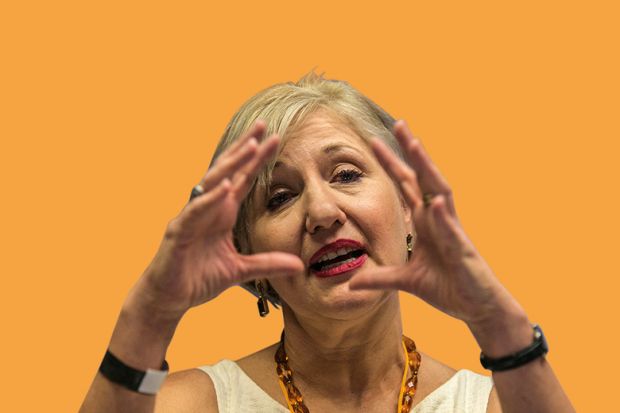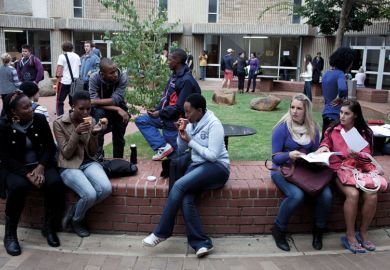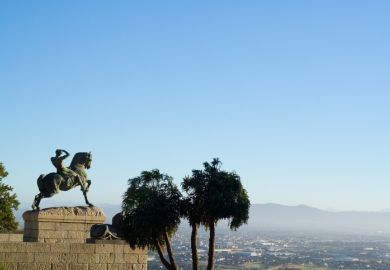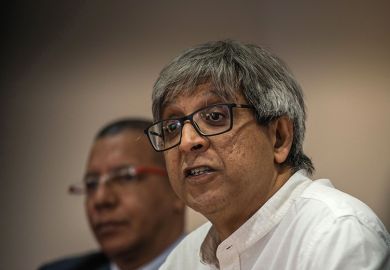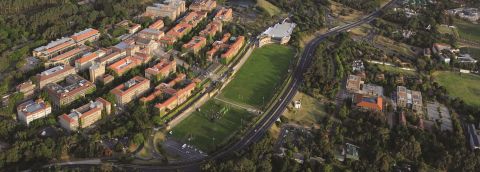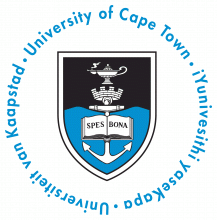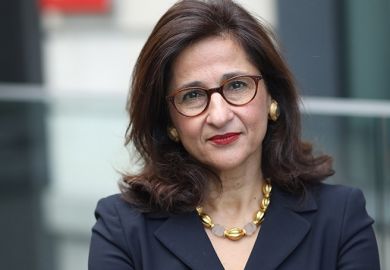Academic freedom and the freedom of scholarly research are guaranteed by the South African constitution of 1996. This, according to the Academy of Science of South Africa (ASSAf), “is one of the many reasons why [our] constitution is considered to be unique”. Yet, in practice, there is reason to doubt that South African academics are any freer than those anywhere else.
During May and June, there were two separate instances in which high-profile and accomplished scholars came under personal attack by authorities for their scientific views.
Glenda Gray is an eminent paediatrician who has conducted ground-breaking research on the role of post-exposure prophylaxis to reduce mother-to-child transmission of HIV. She is the president of the South African Medical Research Council (MRC) and since a state of disaster was declared by South African President Cyril Ramaphosa in response to the Covid-19 pandemic on 15 March, she has served on the Ministerial Advisory Committee, providing medical advice to the health minister, Zweli Mkhize.
On 16 May, after seven weeks of strict lockdown, Gray felt compelled to speak out regarding some of the regulations she believed were irrational – including restrictions on outdoor exercise and a ban on the sale of open-toe shoes – and to voice her concern that the lockdown was causing malnutrition in children. Mkhize chastised her publicly for contradicting government policy, while the acting director general of health wrote a letter to the chair of the MRC board accusing Gray of making “false allegations against the government” and recommended that “the board investigates the conduct of [Gray] on this matter given the harm it has caused”.
To its credit, the academic community came to Gray’s defence. The response included an article in the South African Medical Journal co-authored by University of the Witwatersrand vice-chancellor Adam Habib, ASSAf president Jonathan Jansen and medical ethicist Jerome Amir Singh reaffirming that freedom of speech and public interest – not allegiance to political authorities – should underpin scientific advice to government. The ASSAf also issued a public statement saying it was Gray’s “right as a scientist to differ from political authority on questions of science” and that “to threaten researchers and to muzzle their voice would have a chilling effect on creativity, innovation and experimentation”.
Nicoli Nattrass is a former Rhodes scholar who is a professor in the School of Economics at the University of Cape Town (UCT). She has twice received the university’s annual Book Award for her books about Aids. On 27 May, the South African Journal of Science (SAJS) – the flagship publication of the ASSAf – included a two-page commentary by Nattrass entitled “Why are black South African students less likely to consider studying biological sciences?”. Her commentary interrogated this important question, and the project had been approved by her faculty’s research ethics committee.
A couple of weeks later, Jansen – a former vice-chancellor of the University of the Free State and now a distinguished professor at Stellenbosch University – wrote an opinion piece in a national publication in which he roundly criticised the study’s lack of cultural sensitivity. However, he also reflected that the reaction that Nattrass’ paper provoked “is something so chilling that it should send shivers down our democratic spines”.
A member of UCT’s executive telephoned the editor of the SAJS to demand that the commentary be retracted. To her credit, the editor refused. An enigmatic organisation at UCT that calls itself the Black Academic Caucus also sent a letter to the minister of higher education, urging: “We strongly call upon you to withdraw this publication from the journal.” The minister, too, declined their injunction.
The UCT executive leadership then issued a statement on Twitter, charging that Nattrass’ paper was “offensive to black students” and raised troubling questions about the “standards and ethics of research” at the university; the executive would be investigating the matter further, it added.
While we disagree with the cultural bias of the questions posed by Nattrass, she did not deserve the vitriol and personal attacks that followed the UCT executive’s statement.
The ASSAf subsequently issued a statement defending the editorial independence of the SAJS and upholding the principle of academic freedom of any author to submit the results of their research for publication. The editorial board then published a special issue of the journal that gave space to rebuttals, in the form of social and intellectual criticism, with an opportunity for response by Nattrass.
South Africa’s concern for academic freedom long predates the post-apartheid constitution. Thomas B. Davie was appointed vice-chancellor of UCT in 1948, the same year that the National Party came to power and began introducing segregation. Five years later, Davie gave an address to students in which he gave a seminal articulation of the “four essential freedoms” that academic freedom consists of: “the freedom of the university to determine without outside pressure or force what to teach, whom to teach, how to teach, and who shall teach”. This definition was subsequently cited in a landmark case by the US Supreme Court in 1957.
Yet these two recent examples of attacks on high-profile scholars – by government officials on Glenda Gray and by a university executive on Nicoli Nattrass – should give us all pause. Davie would no doubt have approved Jansen’s comment on the letter by the Black Academic Caucus to a government minister: “Not even apartheid’s apparatchiks would pull a stunt like that.”
Christopher L. Vaughan is emeritus professor of biomedical engineering and Daniel J. Ncayiyana is emeritus professor and former deputy vice-chancellor of the University of Cape Town. They both write in a personal capacity.
Register to continue
Why register?
- Registration is free and only takes a moment
- Once registered, you can read 3 articles a month
- Sign up for our newsletter
Subscribe
Or subscribe for unlimited access to:
- Unlimited access to news, views, insights & reviews
- Digital editions
- Digital access to THE’s university and college rankings analysis
Already registered or a current subscriber? Login
